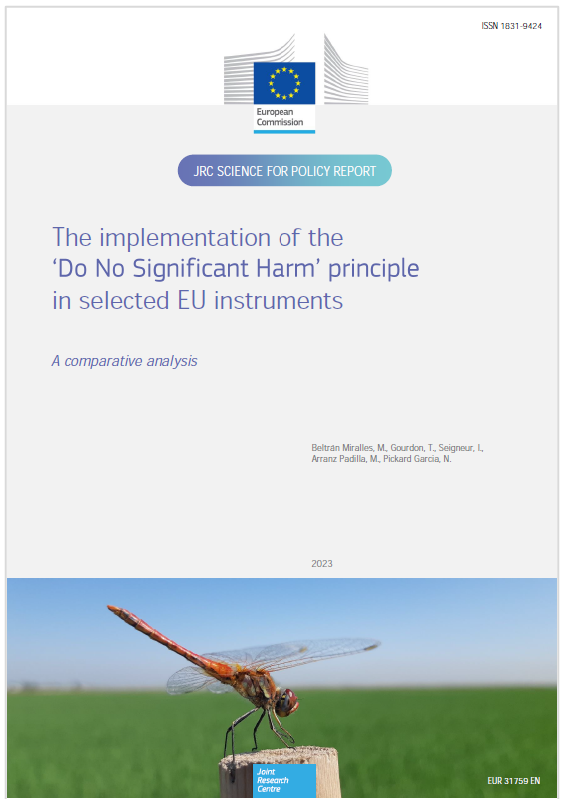| 1 x afterRenderRawModule mod_menu (Temi) (293.56KB) (14.98%) | 39.63ms |
| 1 x afterRenderRawModule mod_menu (Main Menu) (21.23KB) (11.24%) | 29.74ms |
| 1 x After Access::preloadPermissions (com_content) (16.77MB) (9.71%) | 25.69ms |
| 1 x afterInitialise (3.36MB) (8.57%) | 22.67ms |
| 1 x afterRender (730.19KB) (8.54%) | 22.58ms |
| 1 x Before Access::getAssetRules (id:8 name:com_content) (466.73KB) (7.45%) | 19.72ms |
| 1 x afterRenderRawModule mod_articles_categories (Ambiente) (477.52KB) (6.88%) | 18.19ms |
| 1 x afterRenderComponent com_content (59.55KB) (4.73%) | 12.51ms |
| 1 x beforeRenderRawModule mod_login (Accedi all'area riservata) (1.75MB) (4.65%) | 12.30ms |
| 1 x afterRenderRawModule mod_menu (Documenti Abbonati) (170.66KB) (2.46%) | 6.52ms |
| 1 x afterRoute (366.17KB) (2.33%) | 6.15ms |
| 1 x afterRenderRawModule mod_menu (Top Menu) (31.08KB) (1.77%) | 4.67ms |
| 1 x afterRenderRawModule mod_menu (Policies) (24.11KB) (1.6%) | 4.23ms |
| 1 x afterLoad (86.96KB) (1.5%) | 3.96ms |
| 1 x afterRenderRawModule mod_menu (Marketing) (21.64KB) (1.41%) | 3.72ms |
| 1 x beforeRenderRawModule mod_menu (Main Menu) (33.87KB) (1.3%) | 3.44ms |
| 1 x afterRenderRawModule mod_menu (Store) (17.13KB) (1.22%) | 3.24ms |
| 1 x afterRenderRawModule mod_menu (Social) (60.09KB) (1.21%) | 3.19ms |
| 1 x afterRenderRawModule mod_menu (Media) (13.78KB) (1.02%) | 2.69ms |
| 1 x afterRenderRawModule mod_login (Accedi all'area riservata) (63.27KB) (0.93%) | 2.45ms |
| 1 x afterRenderRawModule mod_menu (Info) (10.42KB) (0.82%) | 2.17ms |
| 1 x Before Access::preloadComponents (all components) (34.53KB) (0.31%) | 814μs |
| 1 x Before Access::getAssetRules (id:43844 name:com_content.article.21608) (514.65KB) (0.3%) | 783μs |
| 1 x beforeRenderComponent com_content (37.17KB) (0.28%) | 731μs |
| 1 x afterRenderModule mod_menu (Main Menu) (11.27KB) (0.23%) | 614μs |
| 1 x Before Access::getAssetRules (id:1000685 name:com_attachments) (9.89KB) (0.21%) | 567μs |
| 1 x afterRenderModule mod_articles_categories (Ambiente) (14.5KB) (0.2%) | 533μs |
| 1 x afterRenderModule mod_menu (Temi) (22.67KB) (0.2%) | 517μs |
| 1 x afterRenderModule mod_custom (Certifico s.r.l.) (3.36KB) (0.19%) | 513μs |
| 1 x afterRenderModule mod_menu (Media) (4.36KB) (0.19%) | 513μs |
| 1 x afterRenderModule mod_menu (Social) (3.92KB) (0.19%) | 509μs |
| 1 x afterRenderModule mod_menu (Store) (3.3KB) (0.19%) | 507μs |
| 1 x afterRenderModule mod_menu (Documenti Abbonati) (3.94KB) (0.19%) | 499μs |
| 1 x afterRenderModule mod_custom (Titolo "Ambiente") (2.67KB) (0.19%) | 498μs |
| 1 x afterRenderModule mod_menu (Info) (3.05KB) (0.19%) | 497μs |
| 1 x afterRenderRawModule mod_custom (Certifico s.r.l.) (4.22KB) (0.19%) | 496μs |
| 1 x afterRenderModule mod_menu (Marketing) (3.3KB) (0.19%) | 495μs |
| 1 x afterRenderModule mod_menu (Policies) (3.3KB) (0.18%) | 488μs |
| 1 x After Access::preloadComponents (all components) (115.88KB) (0.16%) | 431μs |
| 1 x beforeRenderRawModule mod_menu (Social) (41.43KB) (0.16%) | 423μs |
| 1 x afterRenderModule mod_login (Accedi all'area riservata) (6.27KB) (0.12%) | 308μs |
| 1 x afterDispatch (3.06KB) (0.08%) | 224μs |
| 1 x afterRenderModule mod_custom (Regolamento Macchine) (6.95KB) (0.07%) | 180μs |
| 1 x After Access::getAssetRules (id:43844 name:com_content.article.21608) (12.67KB) (0.06%) | 148μs |
| 1 x afterRenderRawModule mod_custom (Regolamento Macchine) (1.03KB) (0.04%) | 115μs |
| 1 x afterRenderRawModule mod_custom (Titolo "Ambiente") (992B) (0.04%) | 113μs |
| 1 x afterRenderRawModule mod_custom (D. Lgs. 81/2008 - TUSSL) (928B) (0.03%) | 89μs |
| 1 x afterRenderRawModule mod_custom (Codice Prevenzione Incendi | RTO II) (928B) (0.03%) | 86μs |
| 1 x afterRenderRawModule mod_custom (Direttiva macchine e norme armonizzate) (1.05KB) (0.03%) | 82μs |
| 1 x afterRenderRawModule mod_custom (TUA | Testo Unico Ambiente) (928B) (0.03%) | 80μs |
| 1 x afterRenderRawModule mod_custom (TUSSL / Link) (976B) (0.03%) | 80μs |
| 1 x afterRenderRawModule mod_custom (CEM4 || Ultimo aggiornamento) (1.03KB) (0.03%) | 80μs |
| 1 x afterRenderRawModule mod_custom (D. Lgs. 231/2001 - Responsabilità amministrativa enti) (960B) (0.03%) | 80μs |
| 1 x afterRenderRawModule mod_custom (D. Lgs. 101/2020 - Protezione esposizione radiazioni ionizzanti) (960B) (0.03%) | 80μs |
| 1 x afterRenderModule mod_menu (Top Menu) (4.11KB) (0.03%) | 80μs |
| 1 x afterRenderRawModule mod_custom (Glossario Certifico HSE) (1.03KB) (0.03%) | 79μs |
| 1 x afterRenderRawModule mod_custom (D. Lgs. 196/2003 - Codice protezione dati personali | GDPR) (960B) (0.03%) | 79μs |
| 1 x afterRenderRawModule mod_custom (DM 21 Marzo 1973 | MOCA IT) (1.03KB) (0.03%) | 78μs |
| 1 x afterRenderRawModule mod_custom (Abbonamento Full) (912B) (0.03%) | 78μs |
| 1 x afterRenderRawModule mod_custom (Abbonamento Full Plus) (912B) (0.03%) | 78μs |
| 1 x afterRenderRawModule mod_custom (Store Certifico) (976B) (0.03%) | 78μs |
| 1 x afterRenderRawModule mod_custom (MEPA) (960B) (0.03%) | 78μs |
| 1 x afterRenderRawModule mod_custom (Certifico ADR) (1.02KB) (0.03%) | 77μs |
| 1 x afterRenderRawModule mod_custom (MOCA - GMP | Consolidato) (1.03KB) (0.03%) | 77μs |
| 1 x afterRenderRawModule mod_custom (Codice Unico Sicurezza) (928B) (0.03%) | 77μs |
| 1 x afterRenderRawModule mod_custom (Food Safety book) (1.02KB) (0.03%) | 77μs |
| 1 x afterRenderModule mod_custom (D. Lgs. 81/2008 - TUSSL) (4.02KB) (0.03%) | 74μs |
| 1 x afterRenderModule mod_custom (D. Lgs. 196/2003 - Codice protezione dati personali | GDPR) (4.44KB) (0.03%) | 69μs |
| 1 x afterRenderModule mod_custom (Codice Prevenzione Incendi | RTO II) (4.16KB) (0.02%) | 66μs |
| 1 x afterRenderModule mod_custom (Glossario Certifico HSE) (3.77KB) (0.02%) | 65μs |
| 1 x afterRenderModule mod_custom (TUA | Testo Unico Ambiente) (4.03KB) (0.02%) | 65μs |
| 1 x afterRenderModule mod_custom (TUSSL / Link) (3.64KB) (0.02%) | 64μs |
| 1 x afterRenderModule mod_custom (D. Lgs. 231/2001 - Responsabilità amministrativa enti) (4.42KB) (0.02%) | 64μs |
| 1 x afterRenderModule mod_custom (D. Lgs. 101/2020 - Protezione esposizione radiazioni ionizzanti) (4.44KB) (0.02%) | 63μs |
| 1 x afterRenderModule mod_custom (CEM4 || Ultimo aggiornamento) (3.91KB) (0.02%) | 63μs |
| 1 x afterRenderModule mod_custom (Abbonamento Full) (4.89KB) (0.02%) | 63μs |
| 1 x afterRenderModule mod_custom (Direttiva macchine e norme armonizzate) (4.16KB) (0.02%) | 62μs |
| 1 x afterRenderModule mod_custom (Certifico ADR) (3.89KB) (0.02%) | 62μs |
| 1 x afterRenderModule mod_custom (MOCA - GMP | Consolidato) (4.02KB) (0.02%) | 62μs |
| 1 x afterRenderModule mod_custom (DM 21 Marzo 1973 | MOCA IT) (4.03KB) (0.02%) | 62μs |
| 1 x afterRenderModule mod_custom (MEPA) (3.75KB) (0.02%) | 62μs |
| 1 x afterRenderModule mod_custom (Codice Unico Sicurezza) (4.02KB) (0.02%) | 61μs |
| 1 x afterRenderModule mod_custom (Abbonamento Full Plus) (15.14KB) (0.02%) | 61μs |
| 1 x afterRenderModule mod_custom (Store Certifico) (3.58KB) (0.02%) | 61μs |
| 1 x afterRenderModule mod_custom (Food Safety book) (4.02KB) (0.02%) | 61μs |
| 1 x beforeRenderRawModule mod_menu (Top Menu) (2.56KB) (0.02%) | 50μs |
| 1 x After Access::getAssetRules (id:8 name:com_content) (11.51KB) (0.01%) | 28μs |
| 1 x beforeRenderRawModule mod_menu (Policies) (616B) (0.01%) | 27μs |
| 1 x beforeRenderRawModule mod_custom (Titolo "Ambiente") (2.2KB) (0.01%) | 27μs |
| 1 x beforeRenderRawModule mod_menu (Info) (440B) (0.01%) | 25μs |
| 1 x beforeRenderRawModule mod_menu (Documenti Abbonati) (1.96KB) (0.01%) | 24μs |
| 1 x beforeRenderRawModule mod_custom (Certifico s.r.l.) (2.29KB) (0.01%) | 23μs |
| 1 x beforeRenderRawModule mod_menu (Temi) (904B) (0.01%) | 23μs |
| 1 x After Access::getAssetRules (id:1000685 name:com_attachments) (10.59KB) (0.01%) | 17μs |
| 1 x beforeRenderRawModule mod_custom (Regolamento Macchine) (13.7KB) (0%) | 11μs |
| 1 x Before Access::getAssetRules (id:1 name:root.1) (760B) (0%) | 10μs |
| 1 x beforeRenderRawModule mod_menu (Media) (912B) (0%) | 9μs |
| 1 x beforeRenderRawModule mod_menu (Store) (912B) (0%) | 9μs |
| 1 x beforeRenderRawModule mod_articles_categories (Ambiente) (2.36KB) (0%) | 9μs |
| 1 x Before Access::preloadPermissions (com_content) (1.51KB) (0%) | 8μs |
| 1 x beforeRenderRawModule mod_menu (Marketing) (896B) (0%) | 8μs |
| 1 x beforeRenderRawModule mod_custom (D. Lgs. 81/2008 - TUSSL) (13.5KB) (0%) | 7μs |
| 1 x beforeRenderRawModule mod_custom (TUSSL / Link) (1.48KB) (0%) | 6μs |
| 1 x beforeRenderRawModule mod_custom (TUA | Testo Unico Ambiente) (2.38KB) (0%) | 6μs |
| 1 x beforeRenderRawModule mod_custom (DM 21 Marzo 1973 | MOCA IT) (1.63KB) (0%) | 6μs |
| 1 x beforeRenderRawModule mod_custom (Codice Prevenzione Incendi | RTO II) (2.25KB) (0%) | 5μs |
| 1 x beforeRenderRawModule mod_custom (Glossario Certifico HSE) (2.38KB) (0%) | 5μs |
| 1 x beforeRenderRawModule mod_custom (CEM4 || Ultimo aggiornamento) (2KB) (0%) | 5μs |
| 1 x beforeRenderRawModule mod_custom (D. Lgs. 231/2001 - Responsabilità amministrativa enti) (2.09KB) (0%) | 5μs |
| 1 x beforeRenderRawModule mod_custom (D. Lgs. 196/2003 - Codice protezione dati personali | GDPR) (2.22KB) (0%) | 5μs |
| 1 x beforeRenderRawModule mod_custom (D. Lgs. 101/2020 - Protezione esposizione radiazioni ionizzanti) (2.72KB) (0%) | 5μs |
| 1 x beforeRenderRawModule mod_custom (Certifico ADR) (2.77KB) (0%) | 5μs |
| 1 x beforeRenderRawModule mod_custom (MOCA - GMP | Consolidato) (2.5KB) (0%) | 5μs |
| 1 x beforeRenderRawModule mod_custom (Codice Unico Sicurezza) (2.25KB) (0%) | 5μs |
| 1 x beforeRenderRawModule mod_custom (Abbonamento Full Plus) (2.38KB) (0%) | 5μs |
| 1 x beforeRenderRawModule mod_custom (Store Certifico) (3.27KB) (0%) | 5μs |
| 1 x beforeRenderRawModule mod_custom (Food Safety book) (2.52KB) (0%) | 5μs |
| 1 x beforeRenderRawModule mod_custom (MEPA) (2.05KB) (0%) | 5μs |
| 1 x beforeRenderRawModule mod_custom (Direttiva macchine e norme armonizzate) (1.27KB) (0%) | 5μs |
| 1 x beforeRenderRawModule mod_custom (Abbonamento Full) (2.39KB) (0%) | 4μs |
| 1 x beforeRenderModule mod_login (Accedi all'area riservata) (736B) (0%) | 3μs |
| 1 x beforeRenderModule mod_articles_categories (Ambiente) (704B) (0%) | 3μs |
| 1 x After Access::getAssetRules (id:1 name:root.1) (1.28KB) (0%) | 3μs |
| 1 x beforeRenderModule mod_menu (Store) (704B) (0%) | 3μs |
| 1 x beforeRenderModule mod_menu (Media) (704B) (0%) | 2μs |
| 1 x beforeRenderModule mod_menu (Policies) (704B) (0%) | 2μs |
| 1 x beforeRenderModule mod_menu (Marketing) (704B) (0%) | 2μs |
| 1 x beforeRenderModule mod_menu (Documenti Abbonati) (720B) (0%) | 2μs |
| 1 x beforeRenderModule mod_menu (Temi) (704B) (0%) | 2μs |
| 1 x beforeRenderModule mod_menu (Top Menu) (704B) (0%) | 2μs |
| 1 x beforeRenderModule mod_menu (Main Menu) (704B) (0%) | 2μs |
| 1 x beforeRenderModule mod_menu (Social) (704B) (0%) | 2μs |
| 1 x beforeRenderModule mod_menu (Info) (704B) (0%) | 2μs |
| 1 x beforeRenderModule mod_custom (Certifico s.r.l.) (720B) (0%) | 2μs |
| 1 x beforeRenderModule mod_custom (Codice Prevenzione Incendi | RTO II) (736B) (0%) | 2μs |
| 1 x beforeRenderModule mod_custom (D. Lgs. 81/2008 - TUSSL) (720B) (0%) | 1μs |
| 1 x beforeRenderModule mod_custom (CEM4 || Ultimo aggiornamento) (736B) (0%) | 1μs |
| 1 x beforeRenderModule mod_custom (Direttiva macchine e norme armonizzate) (736B) (0%) | 1μs |
| 1 x beforeRenderModule mod_custom (DM 21 Marzo 1973 | MOCA IT) (736B) (0%) | 1μs |
| 1 x beforeRenderModule mod_custom (Abbonamento Full) (720B) (0%) | 1μs |
| 1 x beforeRenderModule mod_custom (MEPA) (704B) (0%) | 1μs |
| 1 x beforeRenderModule mod_custom (Regolamento Macchine) (720B) (0%) | 1μs |
| 1 x beforeRenderModule mod_custom (TUA | Testo Unico Ambiente) (736B) (0%) | 1μs |
| 1 x beforeRenderModule mod_custom (TUSSL / Link) (720B) (0%) | 1μs |
| 1 x beforeRenderModule mod_custom (Glossario Certifico HSE) (720B) (0%) | 1μs |
| 1 x beforeRenderModule mod_custom (D. Lgs. 101/2020 - Protezione esposizione radiazioni ionizzanti) (768B) (0%) | 1μs |
| 1 x beforeRenderModule mod_custom (Certifico ADR) (720B) (0%) | 1μs |
| 1 x beforeRenderModule mod_custom (MOCA - GMP | Consolidato) (736B) (0%) | 1μs |
| 1 x beforeRenderModule mod_custom (Codice Unico Sicurezza) (720B) (0%) | 1μs |
| 1 x beforeRenderModule mod_custom (Abbonamento Full Plus) (720B) (0%) | 1μs |
| 1 x beforeRenderModule mod_custom (Store Certifico) (720B) (0%) | 1μs |
| 1 x beforeRenderModule mod_custom (Food Safety book) (720B) (0%) | 1μs |
| 1 x beforeRenderModule mod_custom (Titolo "Ambiente") (720B) (0%) | 1μs |
| 1 x beforeRenderModule mod_custom (D. Lgs. 231/2001 - Responsabilità amministrativa enti) (752B) (0%) | 0μs |
| 1 x beforeRenderModule mod_custom (D. Lgs. 196/2003 - Codice protezione dati personali | GDPR) (768B) (0%) | 0μs |




















